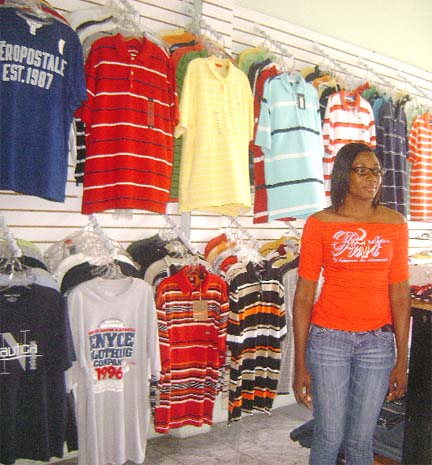Symbols, logos and trademarks are part of a brand’s identity they are not the brand. The brand is really the link between the consumer and the company that produces the product signified by the visual effect such as the Mercedes’ emblem, Nike’s swoosh, Adidas’ three stripes and Nestlé’s nest among others. These visual effects work to cement the relationship between the creator/producer and consumer of the product.
Historically, brands began with the use of a heated tool to mark livestock as property, to mark criminals as a public warning or as a sign of disgrace. Branding has now evolved to a stage where it represents burning qualities and emotions into a consumer’s mind in order to gain clientele and product relationships and loyalty to a particular brand name.

Marketing of brands began in the late 18th century around the time of industrialization when products were moved from being made at individual homes in localized communities to centralized factories. For shipping purposes manufacturers would brand their logos on their barrels hence the “brand name”.
Manufacturers soon realized that it was easier to sell their product if they were branded at that period of the century. As the brand is established as trustworthy, people would begin to consume it. Campbell’s soup, Coca-Cola, Juicy Fruit gum, Aunt Jemima, and Quaker Oats were among the first products to be ‘branded’, in an effort to increase the consumer’s familiarity with their products.
The brand name phenomenon seemed to really blossom in Guyana somewhere around the early 90s though brand names were around for a considerable period earlier such as Puma, Clarks, Adidas and Levi’s among others.
According to reports, Bata was a well-worn brand of shoes and boots here, even if it was not that popular among school-aged children in the 70s and 80s. Many of them must have heaved sighs of relief when the company closed down its factory and stores, The Scene was told.
Then there was in the 90s, the famous local Jeans Junction jeans, which were all the rage among teens and twenty-somethings and possibly older people as well. The Jeans Junction store used to be where Giftland Office Max is now on Water Street and was owned by the same person, The Scene learned.
Before that Gobin’s Store on Regent Street had the monopoly on jeans – that might have been in the 80s – and, according to reports the store sold Wrangler among other brands of jeans, but also had its own store brand which had its own following. It subsequently went out of business.
Universally, branding is encouraged by the use of sport, music and film heroes who endorse brand names for products ranging from cereals to cars. A casual picture of Cuba’s Fidel Castro in an Adidas sport jacket is viewed as product endorsement, so symbolic has the logo of the company become.
Instantaneous transmission devices such as television and the internet have only aided in further promulgating widespread marketing of brand name products.
In the local context brand names tend to be held in a somewhat negative light because there is an impression, not supported by empirical evidence, that many individuals put extraordinary effort into obtaining such items while seemingly neglecting what really matters.
For instance Karen who markets clothing in the Vendors Arcade, downtown Georgetown says she recognizes the importance of brand names with regard to quality but states that in the past she could not recollect brand name products being given such prominence. She says that in her opinion better individuals were produced as a result.
“I like originals… I don’t like to be repeating too steady,” said Robin also a clothes vendor in the stall next to Karen’s, adding, “Some of us go for the brand name and we belly empty so if you can’t afford it get something comfortable.”
People it would seem generally prefer to buy products with established brand names ostensibly because of the quality. There however seems to be a social element to brand names. Renay Marks also doing clothing in the Vendors Arcade suggested, “I guess people feel comfortable in brand name stuff.”
The brand names as mentioned before bring with them certain expectations and one of these is the exclusivity of belonging to a particular ‘jet’ set. Hence with Blackberry and Iphones being the most expensive on the market persons who have those phones see themselves as hipsters or trend setters of sorts. This has seen a clamour by persons to save, borrow, or beg to purchase one of those phones so as to be in that set.
The phenomena has also spawned a whole new market of pirated products that Manager of Ashanti’s Boutique Odetta Barton on Robb Street in downtown Georgetown pointed out is an established downside. “We are not bringing in sneakers anymore,” she said, because, “the fakes on the market are cutting into the profit.”




